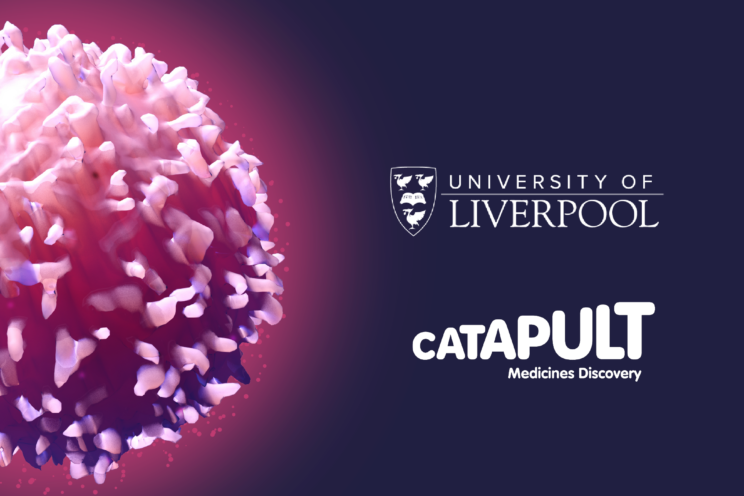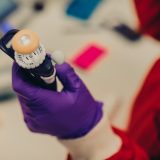A researcher from the University of Liverpool (UoL) will benefit from Medicines Discovery Catapult’s (MDC) specialist advanced microscopy technologies and expertise to support a study into the immune interactions of complex medicines.
Dr Danielle Brain is a postdoctoral researcher within UoL’s Immunocompatibility Group, led by Professor Neill Liptrott as part of the Intracellular Drug Delivery Centre (IDDC).
Dr Brain has been awarded funding from the Innovation Launchpad Network+ Researcher in Residence (RiR) scheme to develop a 3D subcutaneous (the deepest layer of the skin that contains fat cells, collagen, blood vessels, and nerves) skin model to investigate immunological interactions of medicines.
A subcutaneous skin model could be used to determine potential immune reactions at the site of insertion or injection. These immune reactions could then help predict whether complex medicines, such as lipid nanoparticles, would be compatible with subcutaneous delivery of medicines and, ultimately, their efficacy.
As part of the RiR scheme, Dr Brain will spend time at MDC, leveraging its advanced microscopy capabilities to provide an in-depth understanding of the 3D model system and how it can be used to confirm the relationship between medicines and potential immune reactions. The project will strengthen ongoing UoL-MDC collaborations.
Sarah Brockbank, Strategy Leader for Complex Medicines at Medicines Discovery Catapult, said:
“We are delighted to be working with Dr Brain on this project. It will enable us to build on our advanced microscopy capabilities to understand the distribution of complex drug modalities and cellular responses in 3D culture, providing an invaluable capability for the development of new vaccines and therapeutics. This is a great opportunity to apply MDC’s complementary expertise and build on our relationship with the Immunocompatibility Group at Liverpool.”
Dr Danielle Brain, a Postdoctoral Researcher in the Immunocompatibility Group at the University of Liverpool, said:
“This project builds upon research that I conducted during my PhD, and the funding will allow me to develop this subcutaneous model further whilst providing me with invaluable experience using the equipment at Medicines Discovery Catapult and gaining knowledge from their imaging team.”
Professor Neill Liptrott Liptrott, Principal Investigator for the Immunocompatibility Group at the University of Liverpool, said:
“I am incredibly proud of Danielle for securing this funding. The model being developed here will not only support stakeholders in complex medicines but also significantly impact the development and delivery of RNA vaccines and long-acting therapeutics. The knowledge exchange from this project, between MDC, University of Strathclyde, and CPI, will not only strengthen their partnership but also further enhance UK capabilities in the complex medicines space, a crucial area of research.”
Professor Sonia Rocha, Executive Dean for the Institute of Systems, Molecular and Integrative Biology at the University of Liverpool, said:
“We are extremely proud of Danielle; this award is a testament to her drive and excellence. Furthermore, the award will allow Danielle to really conduct impactful research.”



